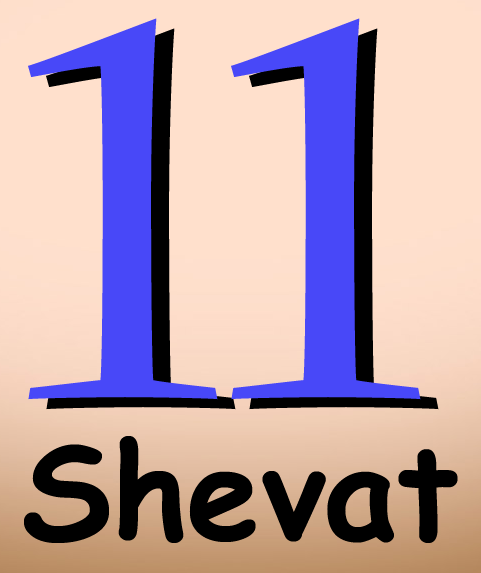Shevat – The 11th month
The 11th month on the Hebrew (God’s) calendar is called Shevat.
 The word Shevat itself transforms to Shabbat. The word “shevat” is related to the Hebrew word for a staff or rod.
The word Shevat itself transforms to Shabbat. The word “shevat” is related to the Hebrew word for a staff or rod.
A staff can be used as a symbol of power, or as a cane to lean on. It serves a master. This is an underlying theme of the month.
And another opinion states that the word “Shevat” is also related to the concept of a royal rod or staff.
In the same way that a king is blessed with riches and all of life’s pleasures are accessible to him, so too, is every God loving person considered a prince or princess, deserving of the very best.
This is reflected in the delicacy and assortment of fruits that are eaten on Tu B’Shevat (the new year of the trees) which occurs in this month.
Also, just as Moses disciplined the Israelites (Jews, Hebrews) with love and compassion rather than severity, we must always temper our authority (our “royal sceptre“) with kindness and concern.
This opinion also notes an interesting connection that exists between the month of Shevat and the mezuzah. Every letter in Hebrew has a numerical value.
If you add up the letters of the word Shevat (shin-veit-tet) it equals 314, the same as Sha-dai (shin-daled-yud), one of God’s Names. This Name is found on the outside of the mezuzah, a hebrew protection from harm.
In the month of Shevat, when we are blessed with a great deal of affluence (as demonstrated on Tu B’Shevat), we must ask God for special protection to guard us from taking our good fortune for granted.
A God loving person must always recognize his special mission in life, that God has put him here to refine and elevate the world for a higher purpose.
When we live up to this responsibility and take up our “royal sceptre,” we will indeed serve as a “light unto the nations” and have a positive influence on all our surroundings.
This month falls in January or February.
By: Apostle A. Ngabo






